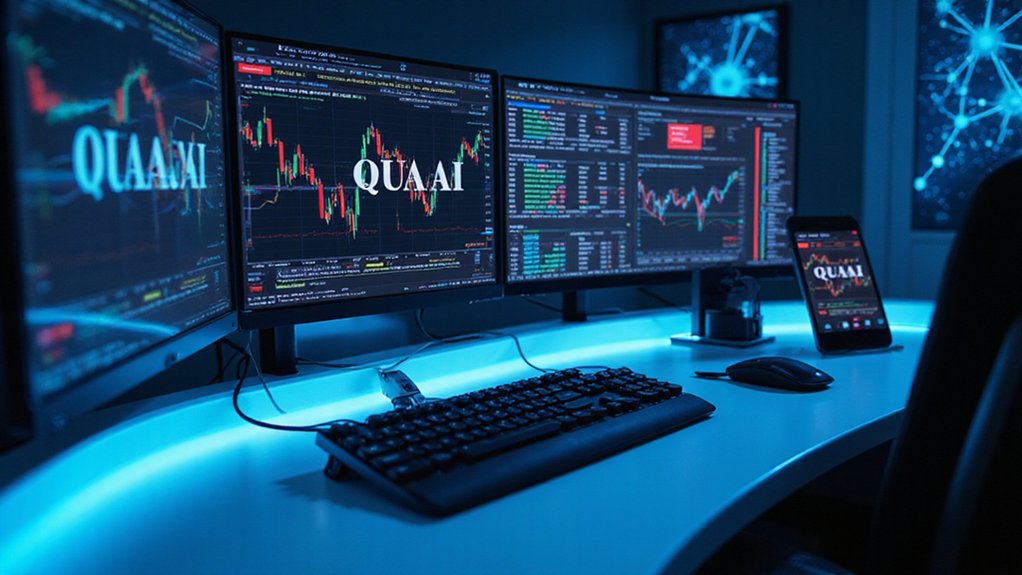Revolution, it seems, has become a remarkably predictable affair in the artificial intelligence sector, where a $391 billion global market now expands with the algorithmic precision of a compound annual growth rate reaching 35.9%—a figure that would make traditional industries weep into their modest single-digit returns.
The mathematics here aren’t particularly forgiving to laggards: this market expects to quintuple within five years, creating what economists might politely term “structural disruption” and what everyone else recognizes as corporate Darwinism with silicon characteristics.
Netflix offers a rather illuminating case study in the economics of early adoption, generating approximately $1 billion annually through AI-driven recommendations—a return on investment that suggests their algorithms understand viewer preferences better than viewers understand themselves.
Netflix’s billion-dollar AI recommendation engine demonstrates that algorithms have mastered the art of predicting human desire with corporate precision.
This phenomenon isn’t isolated; it’s symptomatic of a broader trend where 83% of companies now classify AI as a top business priority, though one suspects the remaining 17% either possess remarkable confidence in their competitive moat or a remarkable capacity for denial. The adoption momentum becomes particularly evident when considering that 92% of businesses plan to invest in generative AI tools within the next three years, suggesting the corporate world has reached a consensus about AI’s inevitability.
The employment implications reveal the paradox of technological progress: while AI threatens to eliminate 85 million jobs, it simultaneously promises to create 97 million new roles by 2025.
McKinsey’s projection that AI may affect 15% of the global workforce by 2030—potentially automating 30% of US work hours—suggests we’re witnessing not merely technological advancement but economic metamorphosis. The transportation and storage sectors face particularly acute disruption, with 56.4% of jobs vulnerable to automation by the early 2030s. In the blockchain analysis sector, platforms like Arkham Intelligence demonstrate how AI-powered systems can aggregate and analyze vast datasets across multiple networks, maintaining over 300 million labels while providing real-time insights that would be impossible through traditional methods.
Geographic concentration tells its own story, with the United States housing 19,392 AI companies compared to Europe’s 14,518 and Asia’s 13,767.
Private investment in generative AI reached $33.9 billion globally in 2024, an 18.7% increase that indicates investors possess either remarkable prescience or remarkable herd instincts.
The AI marketing sector alone—valued at $47.32 billion in 2025 and projected to reach $107.5 billion by 2028—demonstrates how quickly specialized applications can achieve their own gravitational pull.
Companies currently exploring AI in pilot programs represent 43% of US businesses, while 25% operate at scale.
For the remainder, the question isn’t whether to adopt AI but whether they’ll have sufficient market position remaining when they finally decide the revolution merits their attention.







